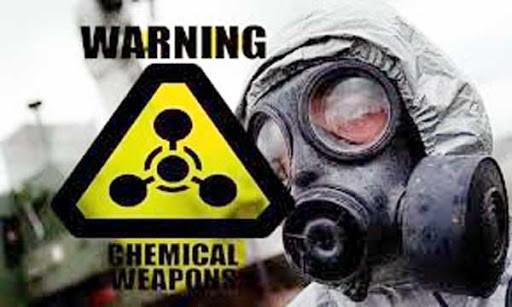In This Story
Originally published on December 3, 2020
A week before the November 30 Conference of the States Parties—the governing body of the Chemical Weapons Convention—in the Hague, Gregory Koblentz, director of the Biodefense programs at the Schar School of Policy and Government invited professional colleagues to present their research to a virtual audience called The Resurgent Chemical Weapons Threat: Current Challenges to the Chemical Weapon Convention.
The webinar drew more than 180 participants from North America, South America, Europe, Middle East, Asia, and Africa, said Koblentz.
See the slides and a recording of the conversation at the biodefense program’s student- and faculty-run blog, The Pandora Report. “The chemical weapons nonproliferation regime is at a crossroads,” Koblentz said following the webinar. “The Chemical Weapons Convention faces its most serious challenge since it was signed in 1993. The distinguished speakers at this event assessed the technical, political, and policy aspects of these developments and the threats they pose to the nonproliferation regime and international security.”
The panelists discussed three major issues which were addressed at the Hague. Those three major issues, including Syria’s use of chemical weapons during their on-going civil war; Russia’s use of chemical weapons to silence dissidents; and the threat that new “incapacitating” agents pose.
The first presenter, Jean-Pascal Zanders, discussed chemical weapons used in Syria. Zanders is an independent researcher and founder of The Trench, a research initiative dedicated to the future of disarmament.
“If Syria is found to be non-compliant,” Zanders said, “then its rights and privileges as a state party to the Chemical Weapons Convention might be suspended or restricted. In other words, it loses its voting rights, among other things. It’s also possible to have much further reaching consequences, including measures that are authorized under international law.”
The second presenter, Stefano Costanzi, is an associate professor of chemistry at American University. His educational background in both chemical science and international affairs has led him to advance research in the existing gaps in policies for chemical weapons proliferation. Most recently, Costanzi has been researching and educating about the Novichok agent which Russia has been suspected of using to silence dissidents.
“Until very recently, Novichoks were nowhere to be found in the [Chemical Weapons Convention] schedules,” Costanzi said, “whereas one might have suspected to find them in Schedule 1A, just like the other nerve agents. Now, I want to be very clear here, this doesn’t mean at all that Novichoks weren’t considered chemical weapons.” Costanzi pointed out that there is evidence to support the conclusion that Russia engineered Novichok with the specific goal of circumventing chemical weapons treaties.
The third presenter, Malcolm Dando, is the Liverpool Trust-Emeritus Fellow in Peace Studies at Bradford University, located in the United Kingdom. Dando is one of the world’s foremost experts on chemical and biological weapons, and has focused the last several years on education in the field of biological security.
“The rate of change in our understanding of the central nervous system, and its operations, is proceeding very rapidly, particularly given the number of state-level brain research projects which have been initiated recently, and we’re now getting to really understand the neuro-circuits which underly our behavior,” Dando said.
Schar School fact: The Schar School’s biodefense graduate program is the oldest, largest, and fastest growing program of its kind in the country. The Master’s in Biodefense program can be completed on-campus, fully online, or through a combination of both. Learn more and how to apply.
Additional reporting by Buzz McClain.

